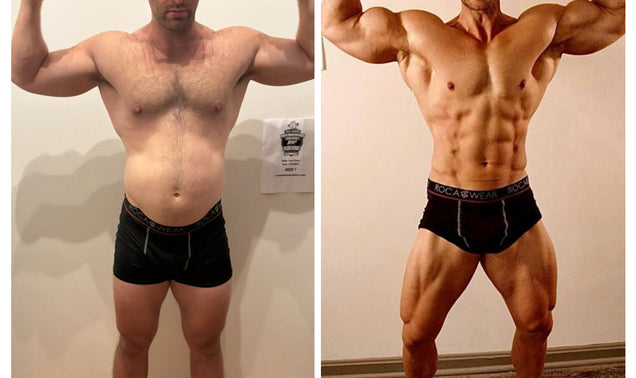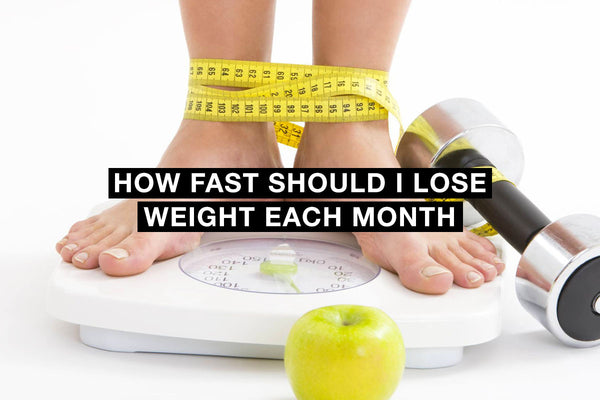Many individuals entering our transformation challenge have the shared goal of losing weight.
In an attempt to get results as quickly as possible (i.e. drop as much weight as fast as they can), many individuals resort to extreme measures -- adopting overly complicated and restrictive diet plans and/or doing hours and hours of cardio.
While this might lead to some short term success, it almost always comes full circle with the individuals re-gaining weight and abandoning their diet and exercise plan.
The reason for this is simple -- the plan they were using was extreme. It was not something that could be sustained or maintained over the long term.
To truly be effective and yield long term changes (the kind of weight loss changes that last for years and years and years), a fitness and nutrition plan has to be practical, enjoyable, and sustainable.
The reason we say this is because all that hard work you are putting in shouldn’t go to waste. If you’re willing to put in the work day after day for weeks on end, you should want those results to stick!
In this article, we’ll discuss the difference between fast weight loss and sustainable fat loss, and also give you and idea of how much weight you should expect to lose each month when doing right way.
Weight Loss vs Fat Loss
Most of the time when individuals embark on a transformation challenge, they set a goal to lose weight.
But, what they really mean is they want to lose fat.
You see, “weight” can mean any number of things, including water weight, fat, and muscle.
Whenever you diet, your goal should be to lose as much body fat as possible while retaining as much lean muscle mass as possible.
This is why it’s important to consume a high-protein diet and perform resistance training while dieting, as these two things are the two most powerful weapons in your arsenal to burn fat and save muscle tissue.
Furthermore, any diet can ensure “rapid weight loss” by putting you on sub-1000 calorie intakes and eliminating carbohydrates.
You’ll lose weight following such a diet, but the majority of it will be water weight and the rest will be a mixture of muscle and fat.
Then, when you get tired of depriving yourself day after day, you’ll resume your normal eating habits and regain all of the weight you lost.
This is why we focus on creating sustainable lifestyle habits that help you to blast fat and keep it off for good.
How Much Weight Should I Lose in a Month?
The answer to this question will depend on quite a few things including genetics, body weight, body fat percentage, etc.
Individuals with considerable amounts of body fat can lose more fat faster than leaner individuals.
But, assuming you’re already somewhat in shape, current evidence-based recommendations for maximizing weight loss and muscle retention while dieting are 0.5 to 1% of bodyweight weekly.[1]
Any faster than this rate of weight loss, and you run the risk of losing hard earned muscle and strength.
To put this in perspective, if you weigh 150lbs, you would want to aim for a weekly weight loss of .75-1.5lbs per week.
Over the course of a month, you’ll lose between 3-6 lbs.
This might not seem like a tremendous amount of weight loss, but it is consistent and sustainable weight loss. The kind of weight loss that can be achieved without overly restrictive diets and hours and hours of endless cardio.
Tips for Losing Weight
Track Your Nutrition
Research conducted in individuals who have lost a considerable amount of weight and kept it off for at least 6-12 months note that one of the most important things they did was log their food intake.[2]
Keeping track of what you eat and how much you eat helps you remain cognizant of your daily calorie intake so you know if you are staying on point with your goals.
Maintain High Levels of Physical Activity
The next most important thing to help lose weight and keep it off is to maintain a high level of physical activity.[2]
This includes performing regular bouts of resistance training and cardio, but also being more physically active in your daily life. Set a goal to hit 10,000 steps each day.
This low level activity helps boost overall calorie expenditure without making you feel like you’re exercising and can help you maintain your weight loss results.
Weigh Yourself Daily
Yet another common habit amongst “successful losers” (people who have lost weight and kept it off for at least a year) is daily weigh-ins.
Keeping an eye on your bodyweight with daily weigh-ins again keeps you “honest” and aware of how your diet and training are affecting your weight.
Since bodyweight can shift up or down a couple of pounds from one day to the next (due to water weight fluctuations), it’s best to take a weekly average of your weigh-ins and see how it changes from week to week rather than focusing on the day to day changes.
Do What You Love
This last point is directly related to your diet and exercise program. In order for your transformation to be successful, it has to be something that you can sustain over the long-term.
And, in order to sustain something (anything in life, really), you have to enjoy it on some level or another.
Even the most perfectly optimized diet and training program will fail miserably if you don’t enjoy it and can’t stick to it.
Paleo, carnivore, Whole 30, IIFYM, Crossfit, bodybuilding, powerlifting, whatever it is. Find the nutrition plan and exercise program that makes you excited to eat healthy and exercise consistently.
This can change over time, and that’s ok. What works for you now might not work for you 5 years from now.
The important thing is to keep an open mind and be willing to experiment to find something that motivates you to show up everyday!
If you need help developing a training program or nutrition plan, we offer both to all contestants who enter our transformation challenge!
References
- Helms, E.R., Aragon, A.A. & Fitschen, P.J. Evidence-based recommendations for natural bodybuilding contest preparation: nutrition and supplementation. J Int Soc Sports Nutr 11, 20 (2014).https://doi.org/10.1186/1550-2783-11-20
- Thomas, J. Graham Ph.D.; Bond, Dale S. Ph.D.; Hill, James O. Ph.D.; Wing, Rena R. Ph.D. THE NATIONAL WEIGHT CONTROL REGISTRY: A Study of "Successful Losers", ACSM's Health & Fitness Journal: March-April 2011 - Volume 15 - Issue 2 - p 8-12 doi: 10.1249/FIT.0b013e31820b72b5






